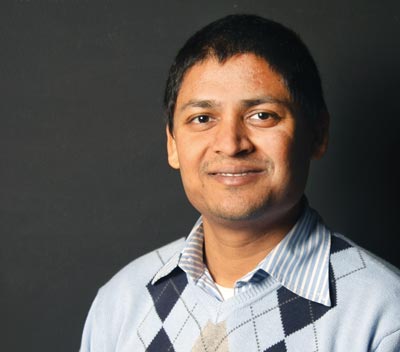Biography
Prof. Aviral Shrivastava is a professor in the School of Computing and Augmented Intelligence at Arizona State University, where he has established and heads the Make Programming Simple (MPS) Lab (https://labs.engineering.asu.edu/mps-lab/).
His research lies in the broad area of “Software for Embedded and Cyber-Physical Systems.” More specifically, Prof. Shrivastava is interested in making programming simpler for i) heterogeneous, many-core and accelerated computing, ii) low-power and error resilient computing, and that of iii) time-sensitive applications.
Prof. Shrivastava received his Ph.D. and Masters in Information and Computer Science from the University of California, Irvine, and bachelors in Computer Science and Engineering from the Indian Institute of Technology, Delhi.
Prof. Shrivastava is a 2011 NSF CAREER Award Recipient, and recipient of 2012 Outstanding Junior Researcher in CSE at ASU. His works have received best paper nomination at DAC 2017, best student paper award at VLSI 2016, and the best paper candidate ASPDAC 2008. His students have received Dean’s dissertation award from Ira. A. Fultons Schools of Engineering in 2021, outstanding Ph.D. student award in CSE at ASU in 2017, and outstanding MS student award in CSE at ASU in 2012 and 2010. Prof. Shrivastava has co-authored 1 book, and has contributed chapters in 4 books. He has more than 120 articles and conference papers in top embedded system journals and conferences, like DAC, ESWEEK, ACM TECS, and ACM TCPS. Overall, his works have received more than 3000 citations, growing at the rate of over 200 citations every year. His i50-index is 14, i10-index is 85, and h-index is 31 (reference Google Scholar). His inventions have been granted 4 patents, and 6 more applications are pending. Prof. Shrivastava’s research efforts have been supported by several industries including Microsoft, Raytheon Missile Systems, Intel, and Nvidia, federal agencies, including NSF, DOE, NIST, and state funding agencies including SFAZ and AIM. His research portfolio is about $3.5M to date.
Prof. Shrivastava has mentored 2 postdocs and graduated 9 Ph.D. students and 21 Masters students. His students are very well placed, including a full Professor at UNIST, South Korea, head of Resilience Research at ARM, Senior members of technical staff at AMD and Micron, Google, NVIDIA, Apple, Mercedes-Benz Research, Qualcomm Research, Cruise, Microsoft, Assistant Professor at SJSU, Assistant Professor at University of the Pacific, etc. Prof. Shrivastava is currently supervising 5 Ph.D. and 8 Masters students. Prof. Shrivastava teaches undergraduate and graduate-level courses on computer organization, computer architecture, and embedded systems, and he has student evaluations averaging over 4/5. He has redesigned the embedded systems course around projects in which students build an autonomously driving car, culminating in an autonomous car race!
Prof. Shrivastava is currently the General Chair of Embedded Systems Week (ESWEEK), which is the top event in the field of Embedded Systems, comprising of several conferences, symposia, and workshops. He also serves in the Steering committee of the Languages Compilers, Theory and tools for Embedded Systems (LCTES). He is currently the Deputy Editor-in-Chief of IEEE Embedded Systems Letters, associate editor for ACM Transactions Embedded Computing Systems (ACM TECS), IEEE Transactions on Computer-Aided Design (IEEE TCAD), ACM Transactions of Cyber-Physical Systems (ACM TCPS), Springer International Journal on Parallel Processing (Springer IJPP), and Springer Design Automation of Embedded Systems (Springer DAEM). Previously he has served as the Program Chair of CODES+ISSS 2017 and 2018, LCTES 2019, and chair of the Design and Applications track of RTSS 2020.
Research: [pubs@ASU] [Google Scholar] [dblp] [ResearchGate][YouTube]
Teaching: [teaching@ASU] [RateMyProfessors]


